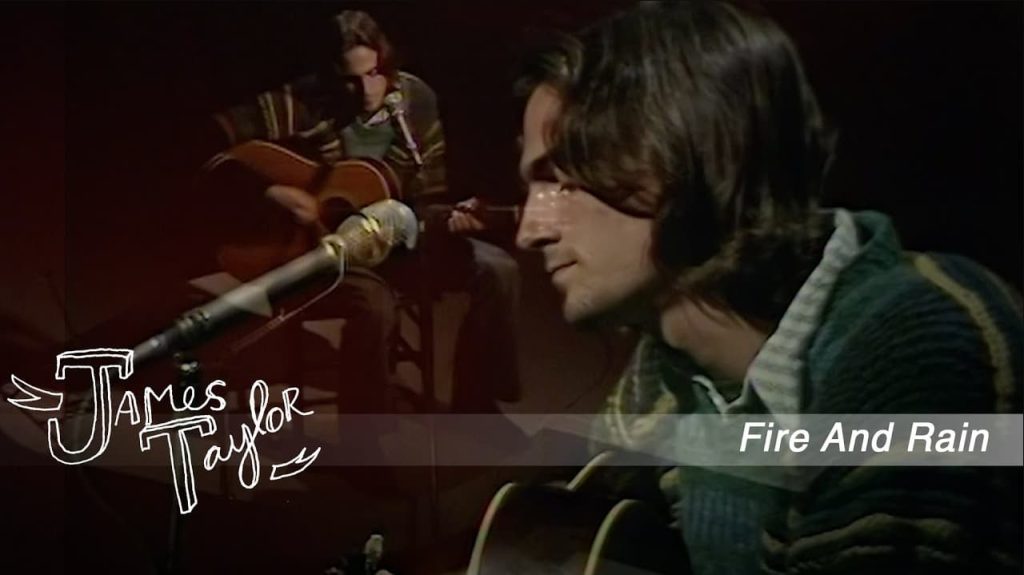
James Taylor’s Timeless Ballad: “Fire and Rain”
In the annals of American folk music, few songs capture the raw emotional essence of life’s highs and lows as poignantly as James Taylor’s “Fire and Rain.” Released in August 1970 as the second single from his sophomore album, Sweet Baby James, this song quickly ascended the charts, peaking at number two on RPM’s Canada Top Singles chart and number three on the Billboard Hot 100. Yet, the song’s resonance goes far beyond its chart success, delving deep into the personal tribulations and existential reflections of its creator.
James Taylor wrote “Fire and Rain” in a period marked by personal turmoil and professional upheaval. The song’s origins trace back to the tragic suicide of Suzanne Schnerr, a close childhood friend, an event that profoundly affected Taylor. Compounding this grief were his struggles with drug addiction and the pressures of burgeoning fame. Each verse of the song addresses different facets of Taylor’s life during this tumultuous time, presenting a narrative both deeply personal and universally relatable.
The first verse confronts the sudden loss of Suzanne, revealing the isolation Taylor felt when he learned of her death—six months after the fact—while he was in London recording his first album. This news, initially kept from him to avoid distraction from his career breakthrough, deeply impacted him, emphasizing themes of isolation and the fragility of human connections.
The second verse shifts to Taylor’s battles with addiction and depression, laying bare his vulnerabilities. It’s a candid look at the internal struggles that often accompany early fame and the personal cost of public life. This part of the song touches on his time with the band Flying Machine, metaphorically referenced in the lyrics as “sweet dreams and flying machines in pieces on the ground,” signifying the collapse of both his band and personal dreams at that time.
In the final verse, Taylor reflects on his sudden rise to fame and the introspective journey that followed. The verse encapsulates the bittersweet nature of success, acknowledging the rocky path that led him there, including his brief tenure with James Taylor and the Flying Machine and his consequential dealings with iconic figures like Paul McCartney and Peter Asher.
Musically, “Fire and Rain” is underscored by the melancholic tone set by Carole King’s piano and the soft, rhythmic brushstrokes of drummer Russ Kunkel. Bobby West’s double bass replaces the conventional bass guitar, further enhancing the song’s somber mood. These elements combine to create a sound that perfectly complements the lyrical content, making “Fire and Rain” a powerful, emotive piece that resonates with listeners’ own experiences of pain and recovery.
Upon its release, “Fire and Rain” was immediately recognized for its depth and honesty. Publications like Record World and Cash Box praised the song for its poignant storytelling and musical integrity. Over the decades, its significance has only grown, evidenced by its inclusion in the Grammy Hall of Fame in 1998 and its high ranking on various prestigious lists, including Rolling Stone’s “500 Greatest Songs of All Time.”
“Fire and Rain” remains a testament to the enduring power of music to connect, heal, and reflect the human condition. It not only marked a pivotal moment in James Taylor’s career but also continues to be an essential part of America’s musical landscape, resonating with generations of listeners who find solace and understanding in its verses.